The Province of Flemish Brabant has another new brewery, and it’s on the site of an old brewery. Which seems to be a trend these days. One that I approve of. Whole-heartedly.

Brouwerij Van Campenhout is located in Kampenhout, which is due northeast of Brussels, on the road to Haacht. Yes, another Belgian brewery….
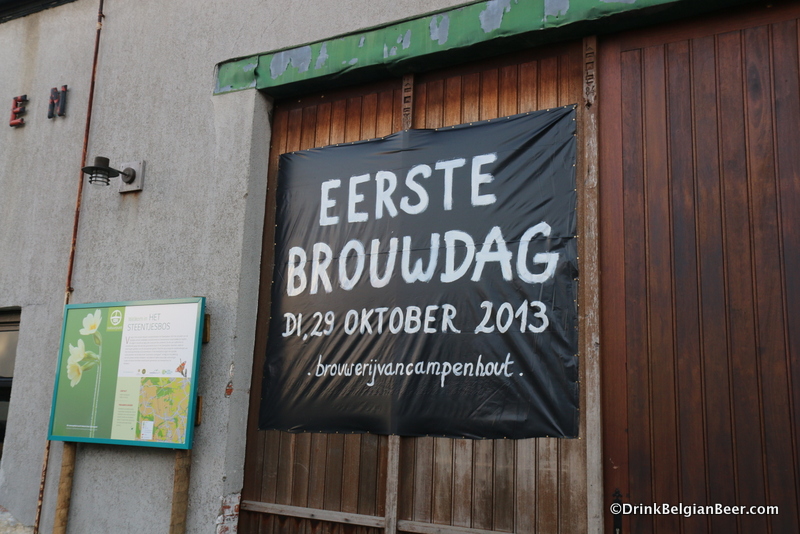
In fact, Brouwerij Van Campenhout is (at least) the fourth brewery to exist at the same site. The first brewery, Brouwerij Wouters, was founded in 1884, and was owned and run by the Wouters family, not surprisingly. The German army took the copper kettles away during the First World War, between 1914-1918, as they did at 95% from of the breweries in Belgium.
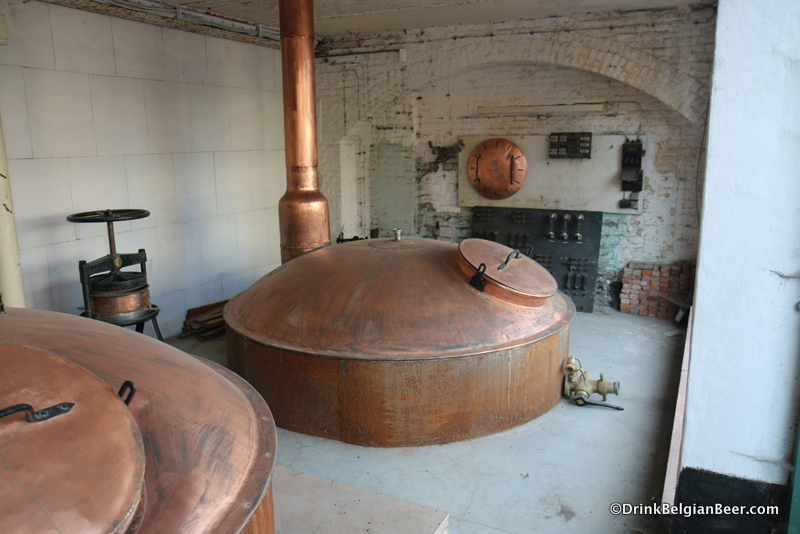
The second brewery, dating to the 1920’s, largely survives today. Kris Smedts and his wife Mieke own the property, and have moved the old copper kettles to a glassed-in window facing the road in front of the brewery: Brouwerijstraat.
Yep, Brewery Street. It just keeps getting better…
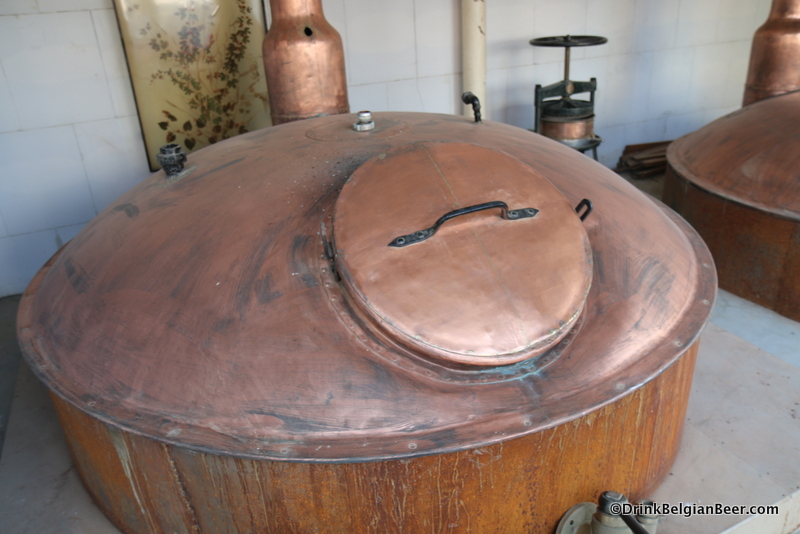
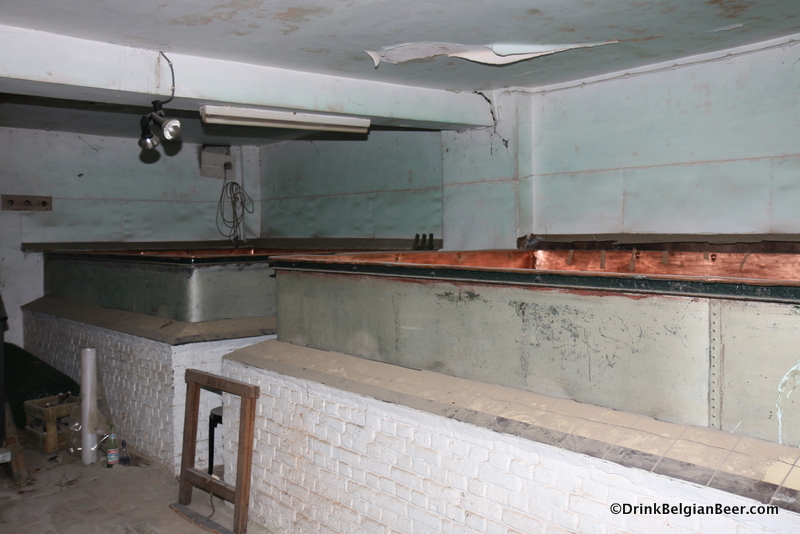

There are also deep, open copper fermenters from the same time period in one of the buildings, and an open mash tun as well. There used to be a coolship, but sadly, it is gone.
The site additionally has an old malting kiln, dating to 1884.
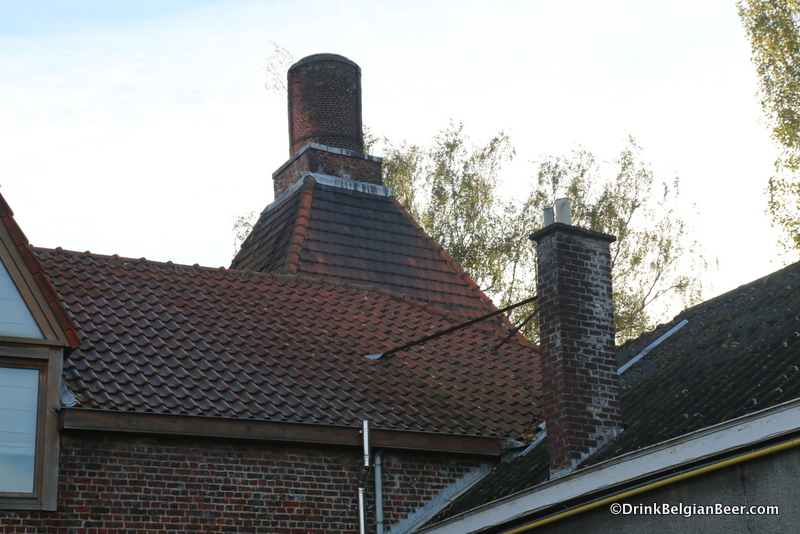
Back to the brewery history. In 1933, the last member of the Wouters family that was trained as a brewer died. Brouwerij Wouters lay dormant until 1939, when Kris Smedts’ father, Renee, purchased the brewery and buildings. At this point the name was changed to Brouwerij Biertoren (Beer Tower Brewery.)
In the 1980’s, another, newer, second-hand brewery, the third on the site, was added. Beers labeled “Campus” were brewed there. Kris Smedts and his brother worked at this brewery for four years, until finally it was closed in 1992 due to financial difficulties. Brouwerij Huyghe (Delirium beers) purchased the Campus brands, recipes, and the third brewhouse in 1993.
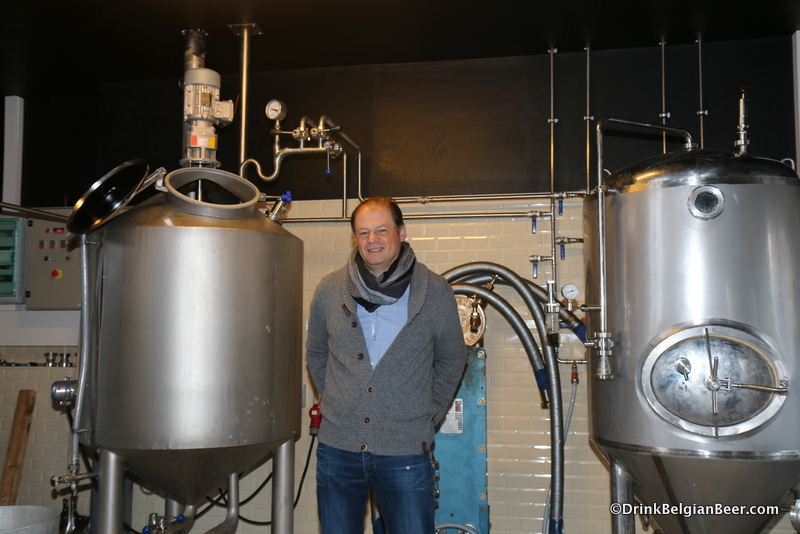
The new, fourth brewery is a hodgepodge of equipment: the mash tun is new, and was built by a Belgian brew engineer. The fermenters and filter tank come from Brouwerij De Leite (near Brugge) and COENCO, a brewery manufacturer in Belgium. A late 1960’s F. D’ Hondt unit is used for filtration purposes.
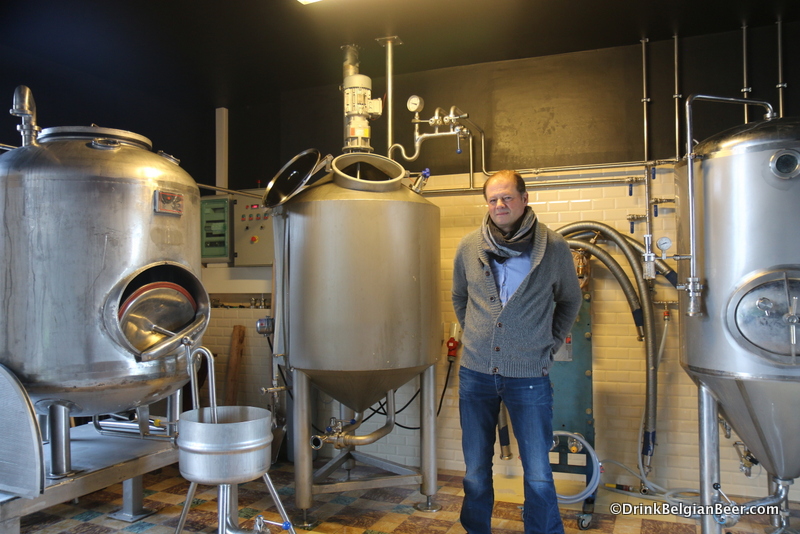
This new brewery is located on the site of the former office where truck drivers received their bills of lading when picking up beer to be transported. Once again, old becomes new again. There is a theme here, and it’s a good one.
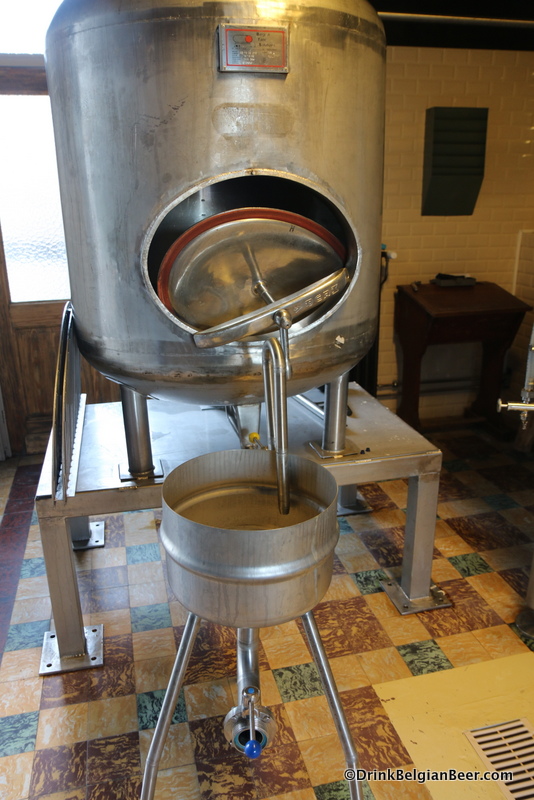
About the new brewery: “It is a 5-hectoliter mash tun and boiling kettle, and we have two 5-hectoliter fermenters,” Smedts remarked on a sunny Halloween day, 2013. “In fact, as you see by the signs, we just started brewing on October 29th,” he added. “Our first beer is a Blond of 6 degrees, called Witlov 6. Our next will be a Tripel of nine degrees, Witlov 9. The reason for the names is that our region is known for the growing of witloof (Belgian endive, also called chicory.) You can taste the Blond from the fermenter today if you like.”
I never turn down opportunities to taste beer, let alone be the first journalist to sample a beer. Even if it is only two days old.
German hops are used, in pellet form, and malts come from Dingemans in Stabroek.

We headed into the “Het Labo” café, named so as it occupies the same space as the former laboratory for Brouwerij Biertoren. (I love it when history, beer, and the present collide.) The café is a smartly decorated locale with a nice touch of history added: a lot of items from the 1920’s brewery are on display, such as an old mashing fork, pumps, scales, and more, in wood and copper.
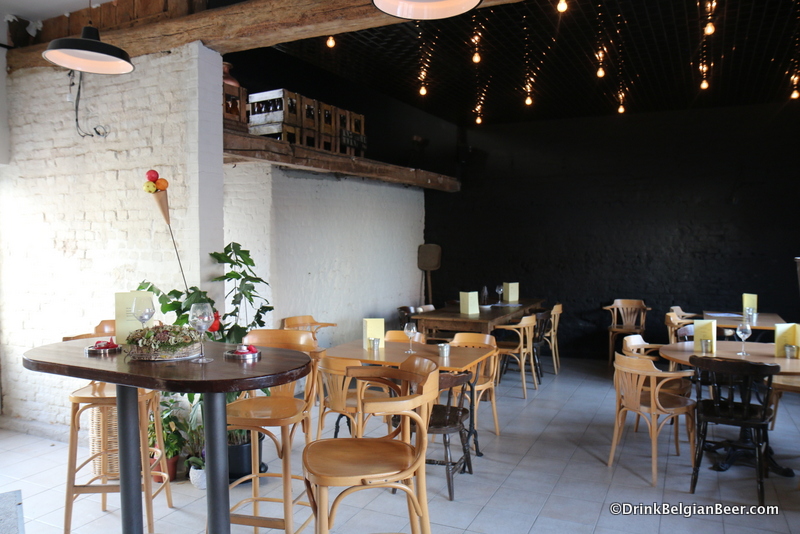
The café opened on June 9th. It does not serve food at the moment, but there are plans to have a kitchen operational by the summer of 2014. About the first brew day, Kris remarked: “We had hoped to have our license and do a first brew on September 6th,” Smedts commented. “But we didn’t get the approval in time,” he added.
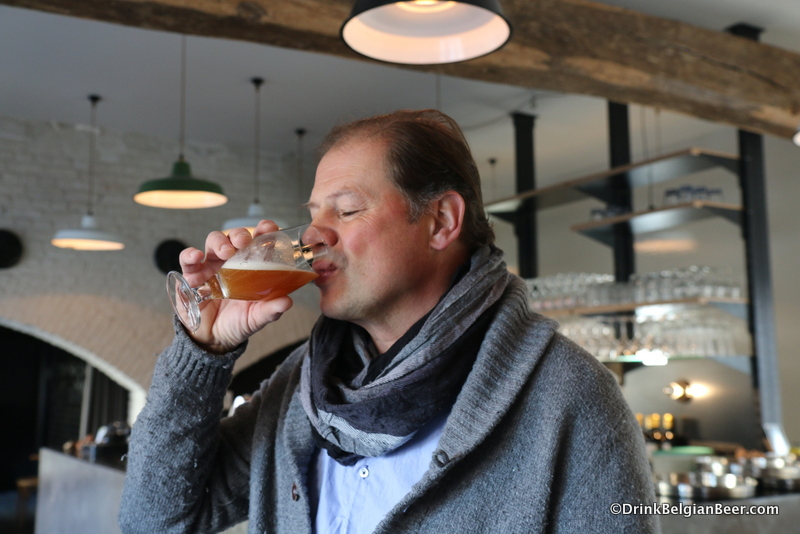
I, along with Belgian friends, beer lover Ludo Donny, and Marie Vanhellemont of Tourism Vlaams Brabant, enjoyed the 48-hour old brew. “It’s still a bit sweet, but I think it has potential,” Smedts observed, and I concurred.
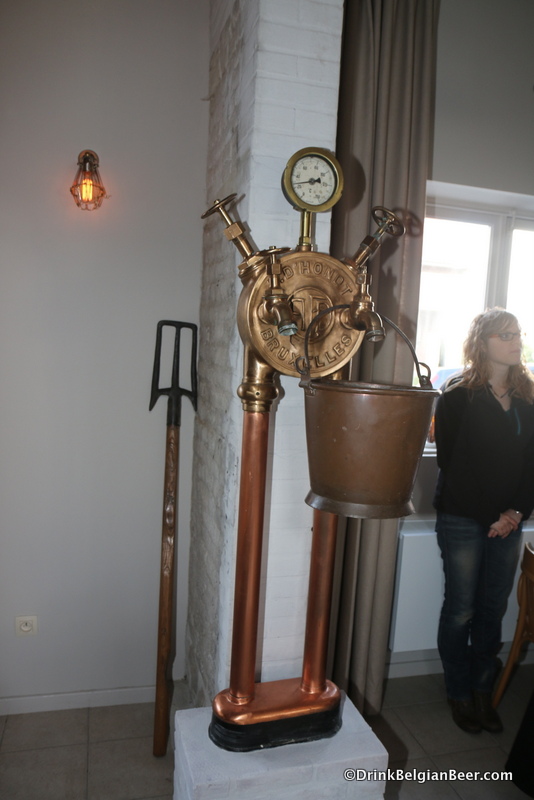
Het Labo is associated with Palm breweries, as evidenced by the beer selection: Palm Ongefilterde (unfiltered Palm) Kriek Boon, the Steenbrugge Abbey beers, Rodenbach, and more. Opening times are as follows: open on Wednesdays from noon to 10 pm; Fridays from noon to midnight (Kampenhout must be a hoppin’ place on Fridays nights…) and Sundays from 10 am to 8 pm.

Brewery visits are offered during those days, and also by appointment on other days. During nice weather in Belgium, you can sit outside on the patio and sip your beer. And soak in the history.

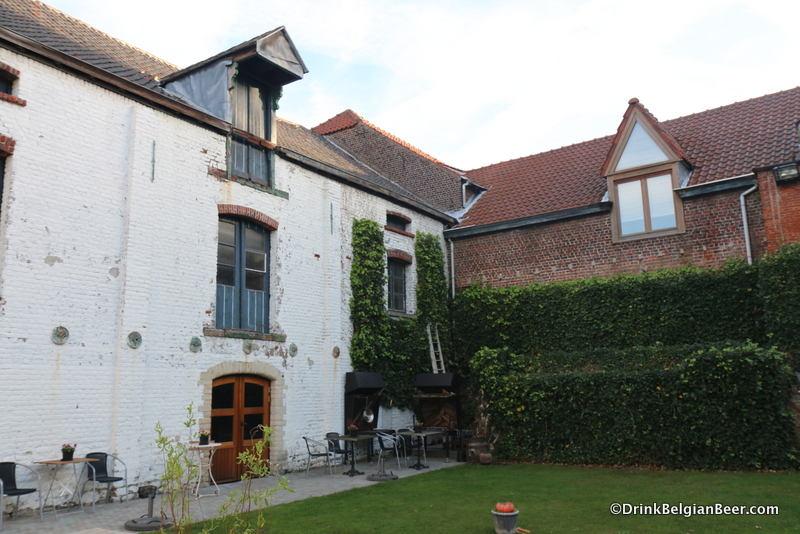
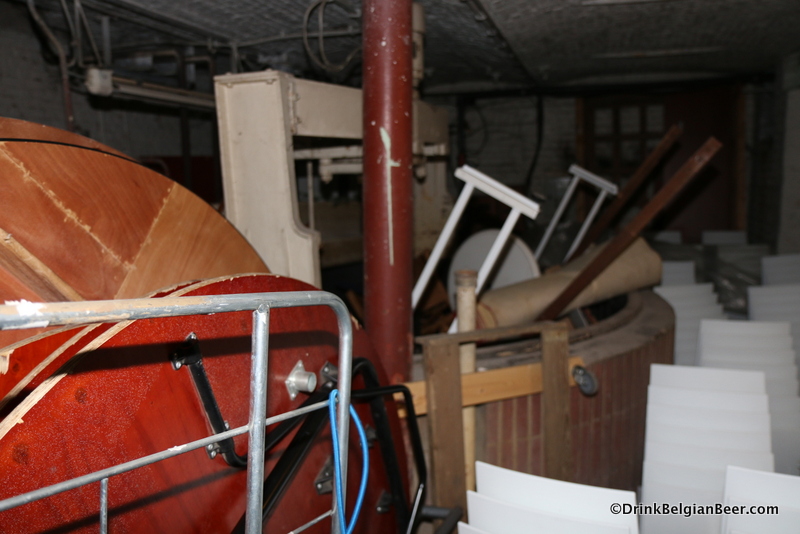

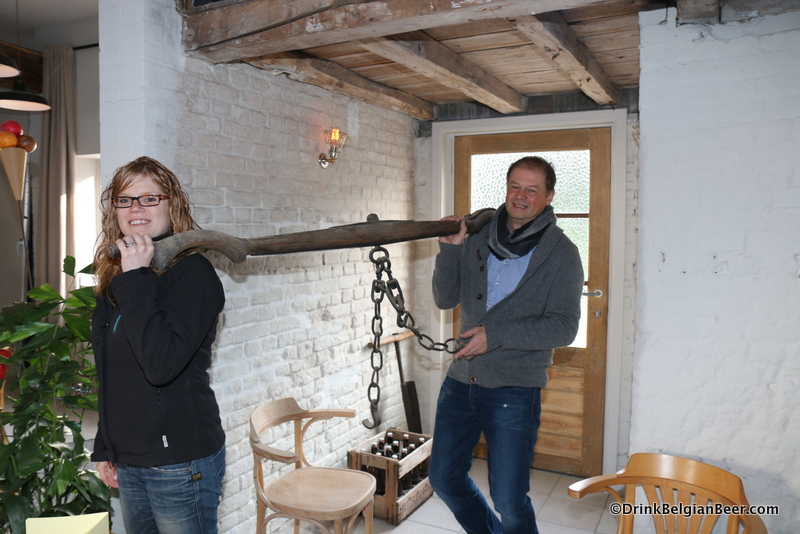
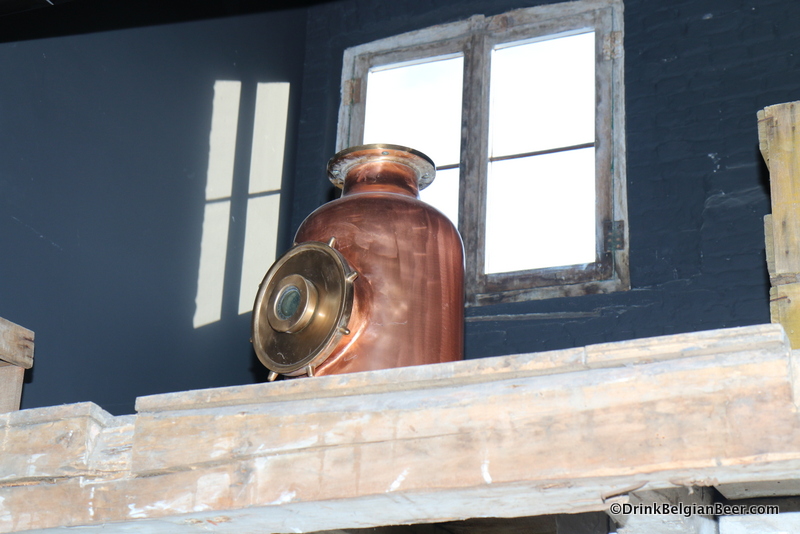

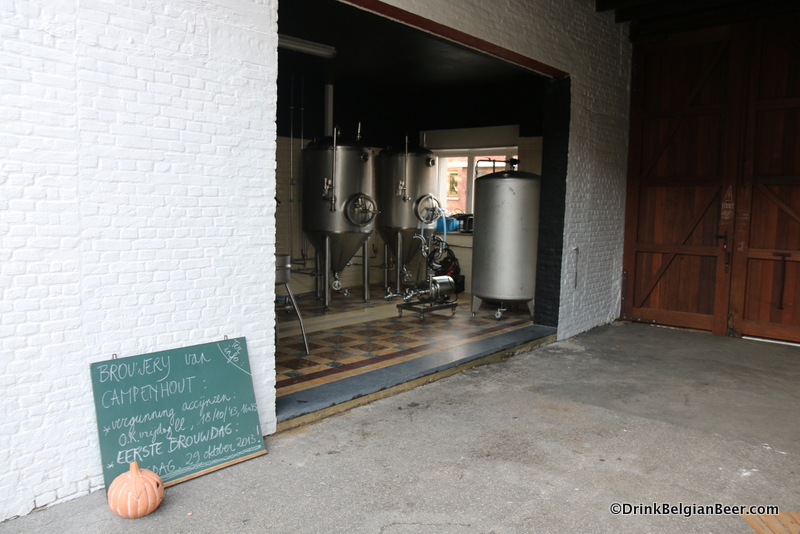
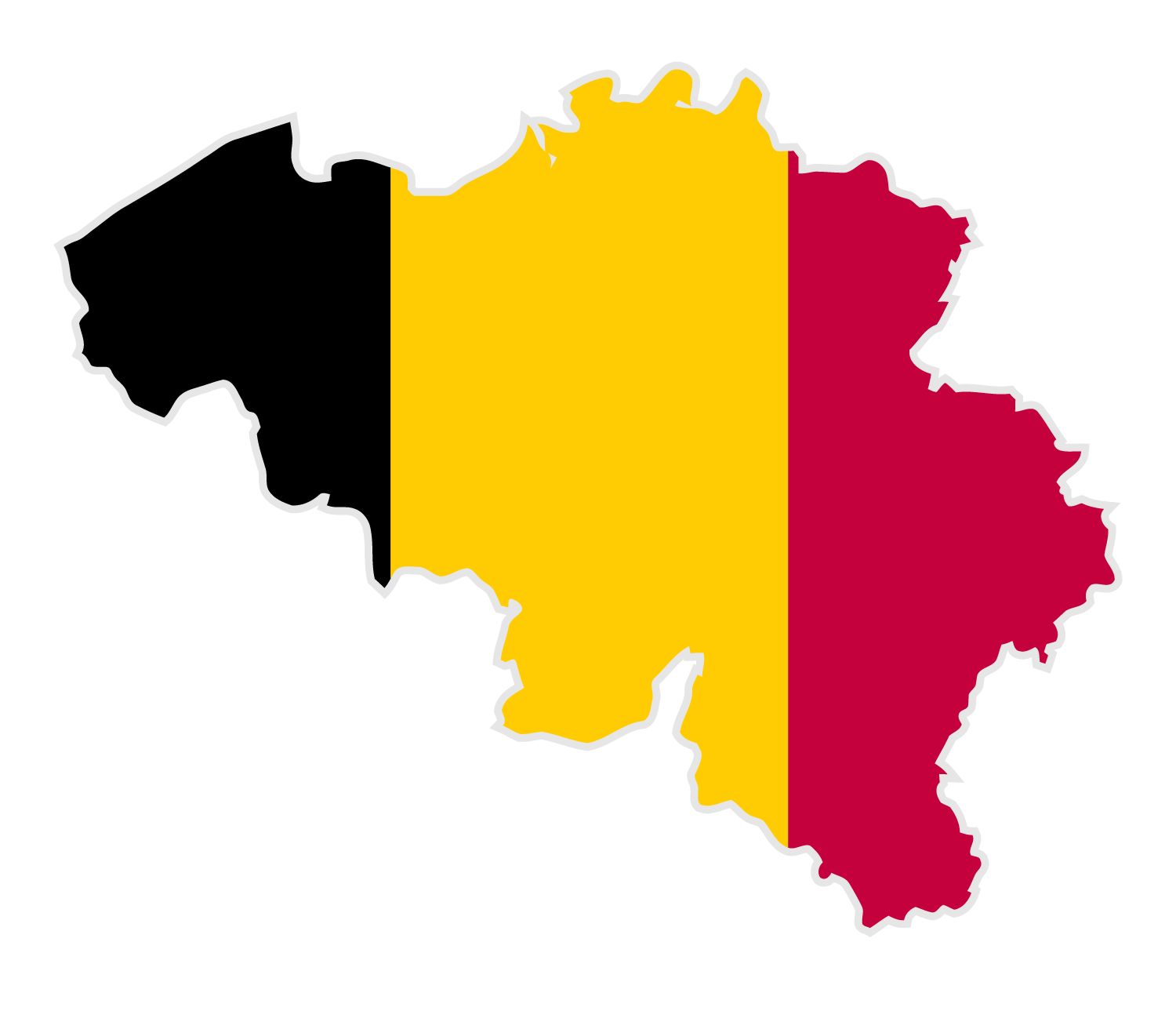

Leave a Reply